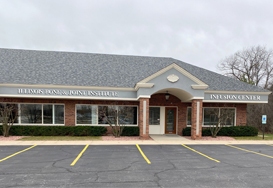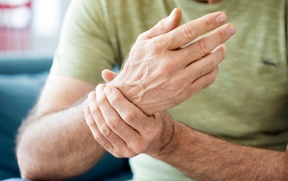Osteoporosis, a condition in which the bones become brittle, frail, and prone to fracture, is a potentially debilitating disease that affects many women and men. Women are particularly predisposed to developing osteoporosis for a variety of reasons. However, men can also be at risk for osteoporosis, as are smokers and people with low body weight. There are three common causes of osteoporosis:
1. Estrogen Deficiencies in Women
Women typically suffer estrogen deficiencies during perimenopause and menopause. Younger women can suffer from estrogen deficiency if they have stopped menstruating or if they have had a reproductive organ surgically removed. When estrogen levels are low, bone loss accelerates, as the bones are no longer able to replenish mineral stores as efficiently as needed. This leads to bones becoming less dense, porous, and more likely to fracture. Proper hormone therapy can help curb estrogen deficiency in women.
2. Calcium Deficiencies
Bones are constantly losing and replacing minerals. Calcium is important for the strength of bones, but it is also needed in the bloodstream for the body’s organs. If there is not enough calcium in the bloodstream, the blood will use the bones’ calcium stores. When this happens, the body is left with brittle bones, which are more likely to develop osteoporosis. Calcium supplements and a calcium-rich diet can help maintain adequate amounts of calcium in both the bloodstream and the bones’ mineral stores to help prevent osteoporosis. Vitamin D is often prescribed along with calcium because vitamin D is necessary for the proper absorption of calcium.
3. Inactive Lifestyle
Much like the tissues of the body, the bones need exercise to maintain their health and strength. People who do not stay active and do not follow a regular exercise regimen are more likely to incur greater rates of bone loss, which leads to osteoporosis in men and women alike. A consistent exercise routine that implements weight training can help keep bones strong.
Osteoporosis can happen as aging occurs, as women go through menopause, as calcium stores are depleted, and it can also be blamed on an inactive lifestyle. Fortunately, osteoporosis can often be prevented and, in some cases, reversed. Hormone therapy, calcium supplements, and exercise can all help maintain and strengthen bone density.
Get Help
If you believe you are at risk for osteoporosis, schedule online with an physician at IBJI. A few simple tests can uncover any hormonal imbalances or calcium deficiencies present. Your healthcare provider can prescribe the appropriate medications, diet, and exercise necessary to help slow or stop osteoporosis in its tracks.
*This content is for information only and is not intended to replace the diagnosis, treatment, or medical advice from your treating healthcare professionals. The content does not provide medical advice, does not constitute the practice of medicine or other healthcare professional services, and does not create a doctor-patient relationship. You should not rely on this information as a substitute, nor does it replace professional medical advice, diagnosis, or treatment. If you have concerns or questions, seek the advice of your healthcare professionals. If you think you may have a medical emergency, call your doctor or 911 immediately. Do not rely on electronic communications or communicate through this website for immediate, urgent medical needs. This website is not designed to facilitate medical emergencies. The use of the information is at the reader’s own risk. The links are provided for information and convenience only. We cannot accept responsibility for the sites linked or the information found here. A link does not imply an endorsement of a site.




